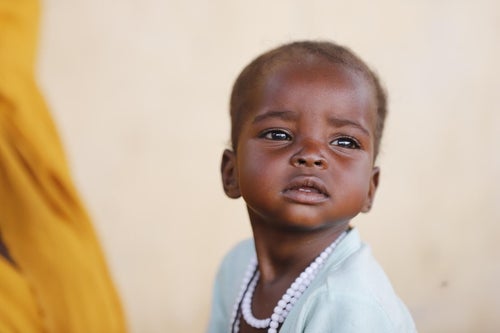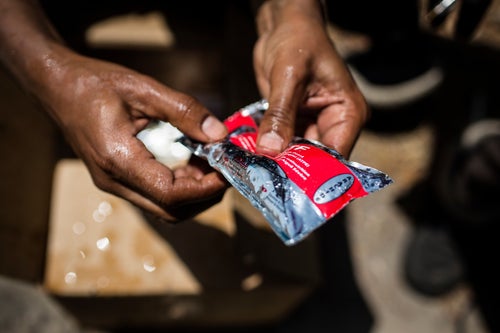The path to village is a dusty one; a quiet, dirt road flanked by a seemingly endless ocean of rice paddies. This green expanse is interspersed with the occasional palm tree; lone cattle laze beneath the fronds, hiding from an unyielding sun above. The buzzing of engines far behind, there is a tranquility here that is difficult to find in the modern world.
This is a path taken by few, but one that twenty-three-year-old farmer, Tin, knows well.
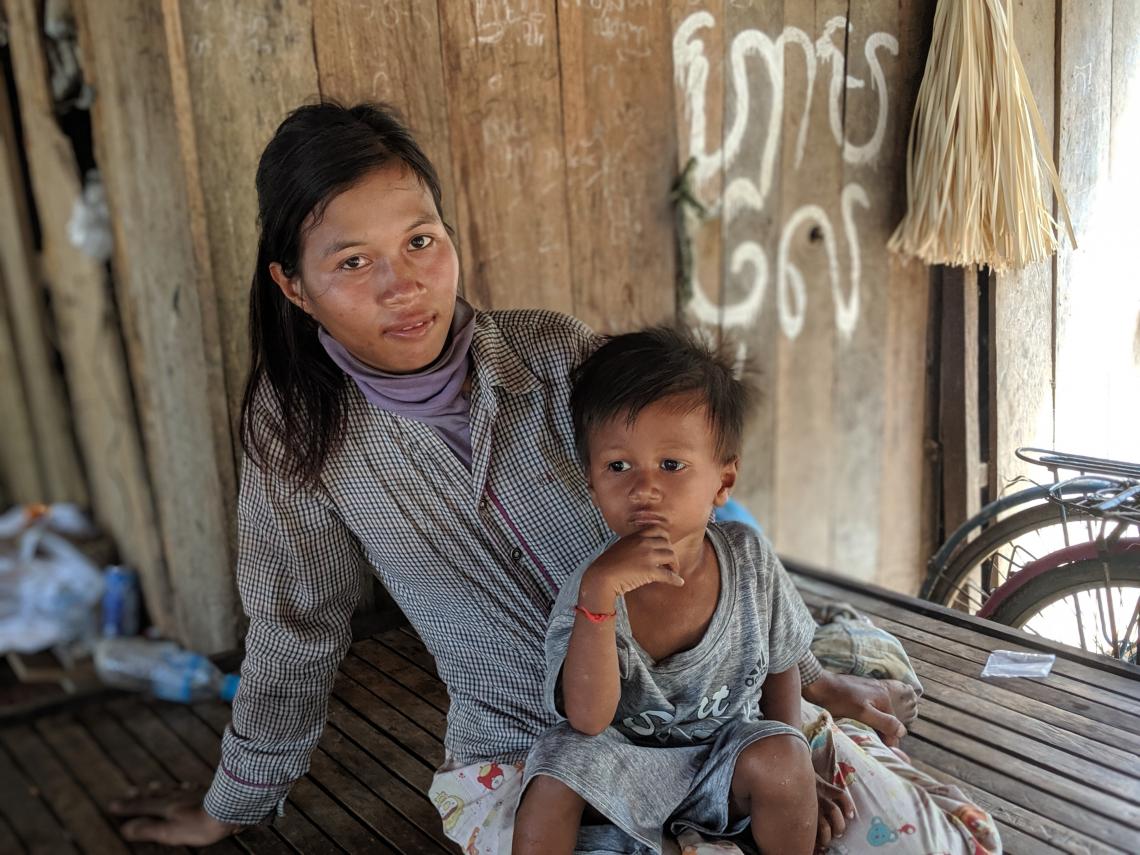
When the MyHealth programme was announced, then-pregnant Tin decided to participate, hoping to utilize all resources available to ensure that her soon-to-be-born child was both healthy, and entering a supportive and enabling environment. Receiving advice from the visiting MyHealth team, Tin was provided with educational resources and guidance on antenatal healthcare, while her biometric measurements were taken and actively monitored to ensure that she was healthy and able to follow through with her pregnancy, safely.
Her son, Meang, now 30-months old, is much loved by his mother – a large smile danced across her face whenever she spoke of him. Cradling the sleeping boy in her arms, Tin spoke of the issues faced by Meang in his early years; “He was malnourished and got sick often,” she recalled, highlighting the respiratory and digestive issues that once plagued Meang, “He was also not growing well”. However, the MyHealth team was able to identify these issues before the onset of serious complications, tailoring their counselling to assist Meang and his mother in forming an effective solution.
As a result of the MyHealth monitoring and implementation framework, Meang was diagnosed as having Severe Acute Malnutrition (SAM). He and his mother were transported by UNICEF to the nearby Health Centre where they were provided with twenty-four packs of BP-100, a ‘Ready-To-Use’ therapeutic food used to treat SAM.
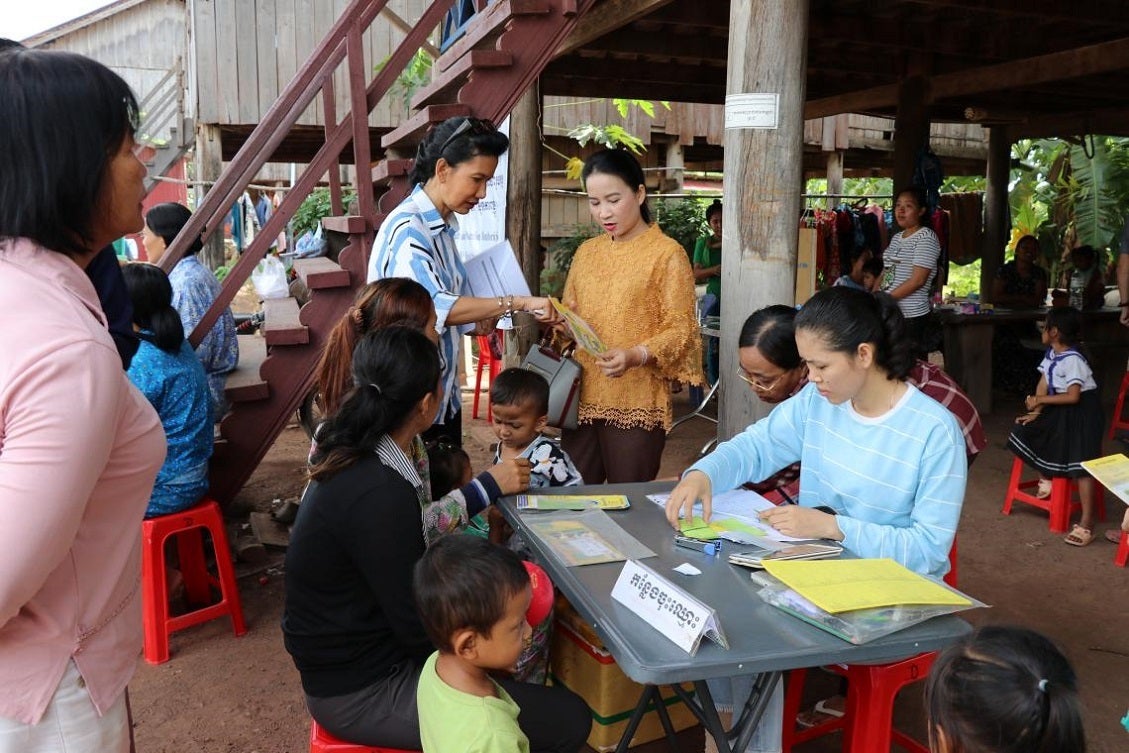
The MyHealth monitoring assessment programme is designed to identify chronic nutritional deficiencies in women and children from target communities. The data collected through this programme is operationalized into future interventions. MyHealth is structured to be a continuous presence in a child’s development, starting from the womb upwards into infancy and childhood.
After registration, participants proceed through three evaluative stages, the first of these being a short questionnaire. Following this, an anthropometric assessment is conducted on both mother and child. It is through these measurements that the nutritional and developmental health of the participants are determined. More importantly, it is this data which is used to identify whether a participant is suffering from malnutrition. Lastly, a dental survey is conducted on the children
A key component of the MyHealth programme is its informative potential, wherein mothers and other caregivers are provided with counseling services by team members on how they can improve the health and nutritional conditions within the home. This aspect of the programme is essential in introducing long-term improvements to the health of recipient communities.
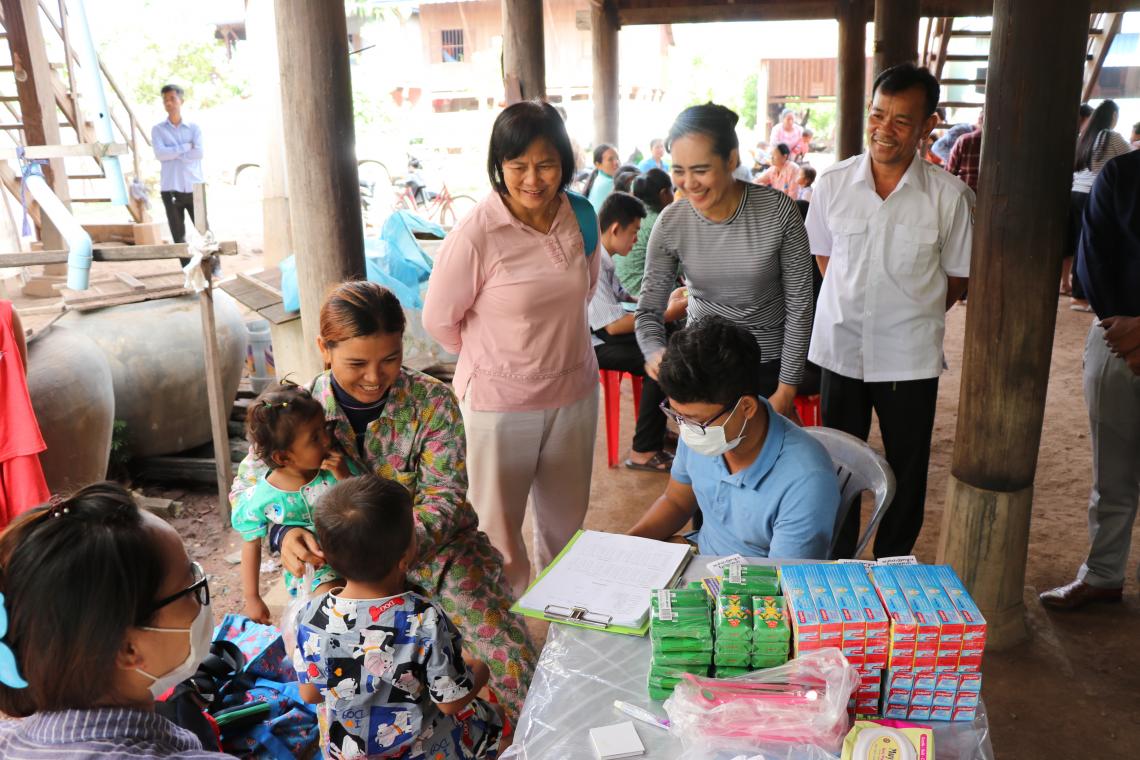
When asked how she felt about the programme, Tin laughed, “Sometimes, there are a lot of people to interview in the sessions. However, I will stay there, even if I have to wait until one or two o’clock to be interviewed.” Tin’s understanding of health, hygiene and nutrition has been bolstered by her time as a participant in the programme. Her commitment to bettering the life of herself and her child is reflected both in her continued involvement and adherence to the advice she has received. This guidance has resulted in many changes within her day-to-day life, such as the construction of a shaded shelter in the fields for children, proper handwashing before meals and the provisioning of nutritious meals throughout the day. She was thankful for the opportunity to participate and lauded the educational aspects of the programme.
Tin and Meang are far from alone in reaping the benefits from participating in the MyHealth programme.
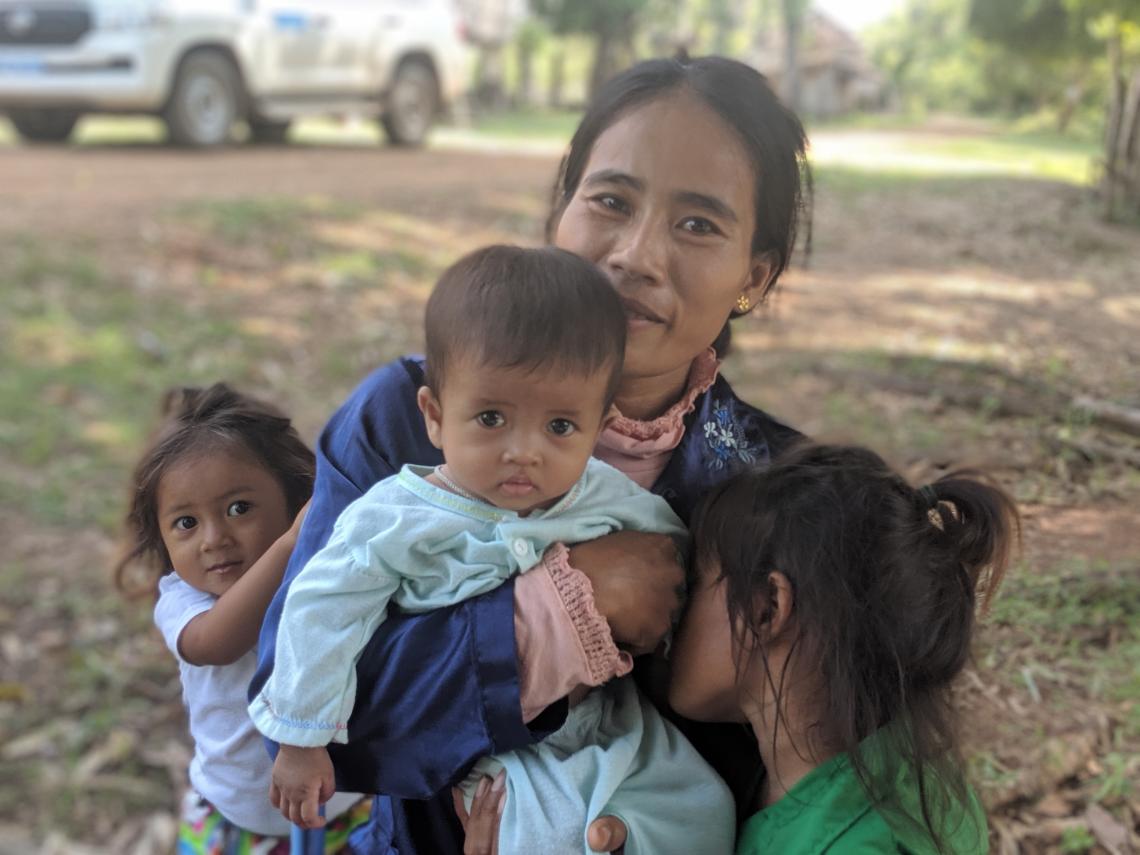
In a nearby village, 32-year old Seang lives with her four daughters. Sitting by the slow flowing stream by her home, surrounded by her smiling daughters, Seang spoke about how much she has learned since getting involved with the MyHealth programme. All but Seang’s eldest were registered to participate, though the changes brought about impacted the entire family for the better. Namely, an emphasis on a creating a balanced diet and improving hygiene practices within the home were introduced.
Seang is still worried about her youngest daughter. Five-month old Lun is underweight, and small for her age, a consequence of Seang’s own struggles with malnourishment. Maternal malnutrition during pregnancy directly contributes to the development of malnutrition in the child. MyHealth has attempted to address this by including maternal health monitoring within the auspice of the programme and follow-up counselling.
While expressing frustration in not fully understanding the causes sustaining this issue, Seang hopes that continued participation in the MyHealth programme - and the periodic assessment and monitoring characteristic of it - will lead to a solution.
The hopes that Tin and Seang have for their children were shared, simply wanting them to be healthy and acquire an education. They both expressed belief in the role that programmes such as MyHealth have in achieving this goal; that the permeance in MyHealth’s solutions enable their children to be healthy - both in the short and long term - to share healthy habits within their communities and ultimately, to focus on bettering themselves as individuals.
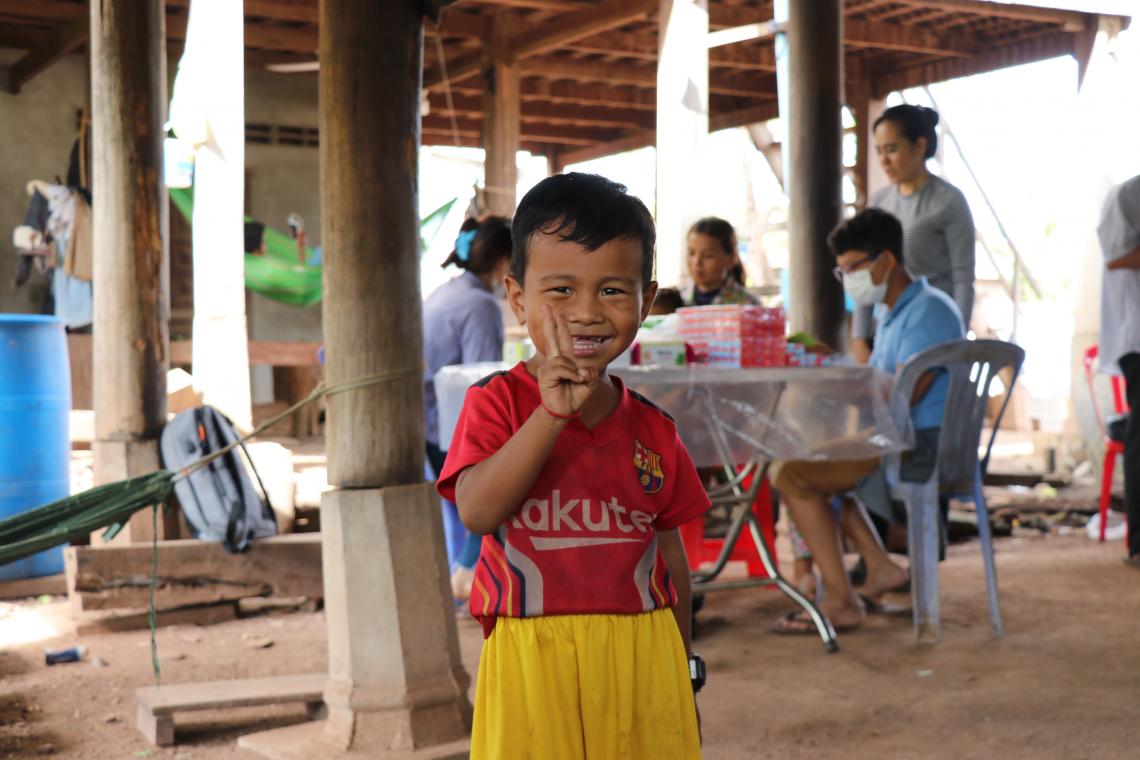
"“I was shocked by how much of a difference monitoring has had on my child’s health,” revealed Seang, “But even more, I appreciated how the [MyHealth team members] understood my situation.”"
Counselling worked to improve the lives of these children and their mothers; it can continue to work for others.
Learn more about how UNICEF Australia is helping to provide food, clean water and other life-saving interventions to children in need around the world.
Learn moreRelated articles
Stay up-to-date on UNICEF's work in Australia and around the world






